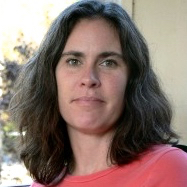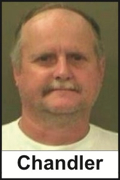Rascals case in brief
In the beginning, in 1989, more than 90 children at the Little Rascals Day Care Center in Edenton, North Carolina, accused a total of 20 adults with 429 instances of sexual abuse over a three-year period. It may have all begun with one parent’s complaint about punishment given her child.
Among the alleged perpetrators: the sheriff and mayor. But prosecutors would charge only Robin Byrum, Darlene Harris, Elizabeth “Betsy” Kelly, Robert “Bob” Kelly, Willard Scott Privott, Shelley Stone and Dawn Wilson – the Edenton 7.
Along with sodomy and beatings, allegations included a baby killed with a handgun, a child being hung upside down from a tree and being set on fire and countless other fantastic incidents involving spaceships, hot air balloons, pirate ships and trained sharks.
By the time prosecutors dropped the last charges in 1997, Little Rascals had become North Carolina’s longest and most costly criminal trial. Prosecutors kept defendants jailed in hopes at least one would turn against their supposed co-conspirators. Remarkably, none did. Another shameful record: Five defendants had to wait longer to face their accusers in court than anyone else in North Carolina history.
Between 1991 and 1997, Ofra Bikel produced three extraordinary episodes on the Little Rascals case for the PBS series “Frontline.” Although “Innocence Lost” did not deter prosecutors, it exposed their tactics and fostered nationwide skepticism and dismay.
With each passing year, the absurdity of the Little Rascals charges has become more obvious. But no admission of error has ever come from prosecutors, police, interviewers or parents. This site is devoted to the issues raised by this case.
On Facebook
Click for earlier Facebook posts archived on this site
Click to go to
Today’s random selection from the Little Rascals Day Care archives….
Click for earlier Facebook posts archived on this site
Click to go to
Today’s random selection from the Little Rascals Day Care archives….
‘They saw themselves as the good guys….’
May 21, 2012
Lee Coleman, a Berkeley, Calif., psychiatrist and co-author of “Has a Child Been Molested?” (2000), served as a consultant to the Little Rascals defense.
“When I examined the terrible interviewing methods,” he recalls, “it quickly became obvious that (Little Rascals) was like the McMartin and Kelly Michaels cases: a complete fabrication.”
How does Dr. Coleman account for therapists’ and prosecutors’ “unwillingness to see what was in front of their faces”?
“[(McMartin therapist) Kee MacFarlane became a national figure by claiming to know how to talk to kids to help them describe abuse. There followed a cadre of young, bushy-tailed professionals who saw themselves as the good guys of a movement. They were glamorous and self-righteous, and they had nothing left to think with. What if a child hadn’t been molested? They never thought about it….
“Then they led meetings across the country, where they taught their system to others, who applied it locally…”
Dr. Coleman’s characterization captures precisely the origin of the Little Rascals allegations, in which a seminar led by “sex rings” alarmist Ann Burgess attracted prosecutor H.P. Williams, therapist Judy Abbott and police dispatcher Brenda Toppin.
‘Very sick…. very troubling…. very sad!’
May 29, 2013
“Very sick! There is clear evidence (the Edenton Seven) are guilty… Very troubling to know someone wastes their time writing about this every day. He’s just as sick as they were. Will pray for (him) and the others. Very sad! Think about the real victims here, they were the children (who) never can escape what they went through. Let it go.”
– Comment from “Believer” in response to “Retired Charlotte Observer Columnist Lew Powell Pursuing State’s Admission of Guilt in Witch Hunt of Wrongly Accused” at NewspaperAlum.com (Aug. 9, 2012)
Was Ben Franklin (or Ambrose Bierce?) correct that “You cannot reason a man out of a position he has not reasoned himself into”? If so, he could hardly have imagined a better example than continued belief in day-care ritual abuse.
The chilling body count of ‘personality-driven’ prosecutors

kristincollinswriting.com
Kristin Collins
July 11, 2016
“This week Harvard Law School’s Fair Punishment Project issued a report detailing the legacies of five of the nation’s deadliest prosecutors, and (Joe Freeman) Britt was among them. The report highlights what it calls ‘personality-driven capital sentencing,’ which leads overzealous prosecutors with a flair for courtroom theatrics and a desire for personal fame to pursue death sentences at disproportionate rates….
“This personality-driven system means that a death sentence often says less about the severity of the defendant’s crime, than it does about the prosecutor’s enthusiasm and courtroom skills. Personality-driven prosecutions can also lead to wrongful convictions, when prosecutors making winning cases a higher priority than seeking justice….
“Britt often cut corners to win. Appellate courts found that Britt committed misconduct in 14 of his capital cases, the new report shows. His offenses included hiding evidence that might have proven defendants innocent and making inflammatory and improper statements to jurors….
“When they were exonerated by incontrovertible DNA evidence, Britt did not even have the heart to admit his mistake. Instead, he continued to loudly proclaim their guilt….”
– From “NC ‘deadliest prosecutor’ valued winning over justice, new report shows” by Kristin Collins at NC Coalition for Alternatives to the Death Penalty (June 30)
I shudder to speculate what might have happened in Edenton had North Carolina sanctioned capital punishment for child sex abuse. The Little Rascals prosecutors, most strikingly Nancy Lamb, bore many of the “personality-driven” characteristics seen in a Joe Freeman Britt:
- “A flair for courtroom theatrics and a desire for personal fame”? Check.
- “Hiding evidence that might have proven defendants innocent”? Check.
- “Inflammatory and improper statements to jurors”? Check.
- “Continued to loudly proclaim their guilt”? Check…..
![]()
Court cracks door – can Junior fit through it?
 Aug. 15, 2012
Aug. 15, 2012
The North Carolina Supreme Court won’t release its next batch of opinions until August 24, but its recent decision on a 2009 child sex abuse case could augur well for Junior Chandler.
On June 14 the court upheld the North Carolina Court of Appeals’ overturning of Patrick Loren Towe’s conviction in Surry County. Here’s the crucial part of the opinion:
“Under the North Carolina Rules of Evidence, a qualified expert may testify as to her opinion in her field of expertise if the testimony will assist the jury in understanding the evidence. An expert may not, however, testify as to the witness’s credibility or state that she believes the defendant is guilty.
“In sexual abuse cases involving child victims, an expert may not testify that sexual abuse has occurred without physical evidence supporting her opinion. An expert may not testify that the child has been ‘sexually abused’ if the testimony is based solely on the interview with the child-victim.”
In Patrick Towe’s case, only one expert witness so testified – in Junior Chandler’s it was six.
Without such a parade of “expert vouching,” Junior surely would have spent the past 25 years back home in Madison County instead of behind bars. How can the North Carolina Supreme Court now fail to acknowledge this?











0 CommentsComment on Facebook